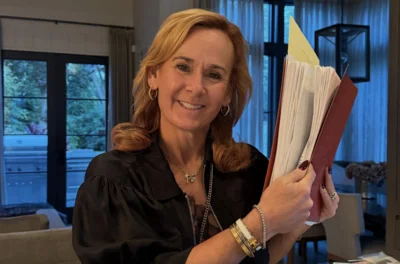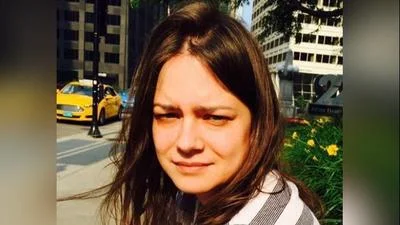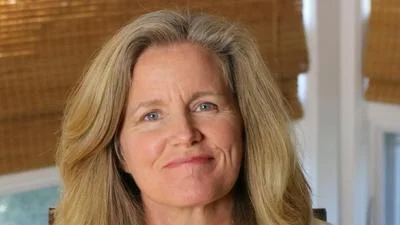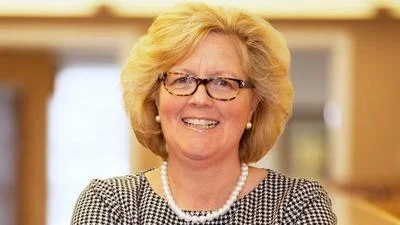In a special meeting held on Jan. 2, Village of Hinsdale President Thomas Cauley, Jr., along with the Board of Trustees, passed an ordinance aimed at addressing the sudden surge in unannounced migrant bus drop-offs in the village.
The ordinance requires bus operators to provide a five-day advance notice and complete an application outlining plans for caring for the migrants. Violating the ordinance could result in a $750 fine, the maximum allowed under state law, and potential bus impoundment.
Cauley said the ordinance was needed after Hinsdale experienced 11 days straight of drop-offs of illegal immigrants in the community.
The issue at hand arose in late December when Hinsdale started receiving unannounced busloads of migrants from Texas, being dropped off near the main train station for transit to Chicago.
This influx resulted from illegal immigrants seeking to take advantage of Chicago's sanctuary city policy but turned away by the city's regulations disallowing unannounced drop-offs, prompting buses to reroute to surrounding suburbs, including Hinsdale.
“We were initially told that the inflow of busses to Hinsdale would last seven days, but we have recently been advised by a bus driver that unless we do something, these busses will keep coming unannounced, at least through March if our southern border continues to remain open,” Cauley said at the emergency.
“As of yesterday, we had 11 unannounced busloads of migrants dropped off in Hinsdale. So that's 11 buses in 11 days. While so far, there have been no problems. We want to forestall any problems that are clearly foreseeable.”
“To date, all busloads of migrants who have arrived in Hinsdale have boarded the trains for their destination, Chicago, without incident. However, we in the police department are not equipped to handle migrants much, much less large group of migrants that appear in Hinsdale unannounced.”
Cauley expressed concern about the unanticipated nature of these arrivals, highlighting potential risks during inclement weather and the lack of resources to handle large groups of migrants, especially during off-hours.
Cauley responded to questions about the proposed ordinance, emphasizing its similarity to Chicago's regulations and the need for advance notice to ensure public safety.
During the meeting, residents were given an opportunity to voice their opinions.
Greg Rivoli, a 13-year Hinsdale resident, thanked the board for addressing the issue promptly. He emphasized the importance of compassion within legal boundaries and sought clarification on the average number of migrants on each bus.
“I appreciate we're a compassionate community,” Rivoli said. “I think everybody knows that within the boundaries of the law. Right. And this is not lawful from the time these folks are entering this country.”
Concerns about the approaching winter and potential dangers for stranded migrants were raised by another resident, Michelle Patek, who the day prior took video of the illegal immigrants huddled at the train station and questioned the presence of ankle bracelets on some individuals.
“I would like to know who those two men were that were coming through town and if they were criminals,” she said,
Cheryl Zimmer, a resident of 28 years, expressed her family's experiences witnessing multiple busloads arriving at unexpected hours, suggesting that migrants might be using alternative routes. She raised concerns about the safety of children in the downtown area, where some buses unload, emphasizing the need for tighter regulations.
“My family's seen many buses come through L.A. right at the Hinsdale train station. But like you said, 30, 35 people coming off several times. They've just been sitting there for quite a bit and they've been at hours we would never expect. Early in the morning, late at night when I was around,” Zimmer said.
The meeting concluded with the council voting in favor of passing the ordinance to restrict unannounced bus drop-offs.
The meeting highlighted the ongoing challenges faced by suburban communities due Chicago’s policies, sparking a conversation about the need for coordinated efforts to address immigration-related issues at multiple levels of government.
With the move Hinsdale becomes just the latest suburban community to limit drop-offs by bus companies highlighting the challenges faced by suburbs amid the arrival of around 26,000 migrants in Chicago since August 2022.
In recent days Cicero, Tinley Park and New Lenox have all limited such drop-offs.
“It’s wrong to drop people on the street with nowhere to go,” Cicero spokesman Ray Hanania told the Chicago Tribune.
Tinley Park’s ordinance, passed on Dec. 19, empowers police to take immediate actions against drivers with the Chief of Police authorized to pursue criminal charges against unscheduled intercity bus operators and drivers endangering passenger welfare.
Additionally, Tinley Park officials have clarified penalties for hotel violations, limiting stays and imposing fines.
Suburban police in Chicagoland grapple with a rise in illegal immigrant bus arrivals, straining resources.
Recent weeks saw an influx in places like Lockport, Joliet, prompting the Will County Emergency Management Agency to coordinate with municipalities.
Local authorities respond to the surge with emergency orders and ordinances. Fox River Grove, Elmhurst, and Kankakee faced challenges with unannounced migrant drop-offs.
Aurora City Council approves an ordinance, requiring advance notice of bus arrivals, mirroring Chicago's regulations.





 Alerts Sign-up
Alerts Sign-up